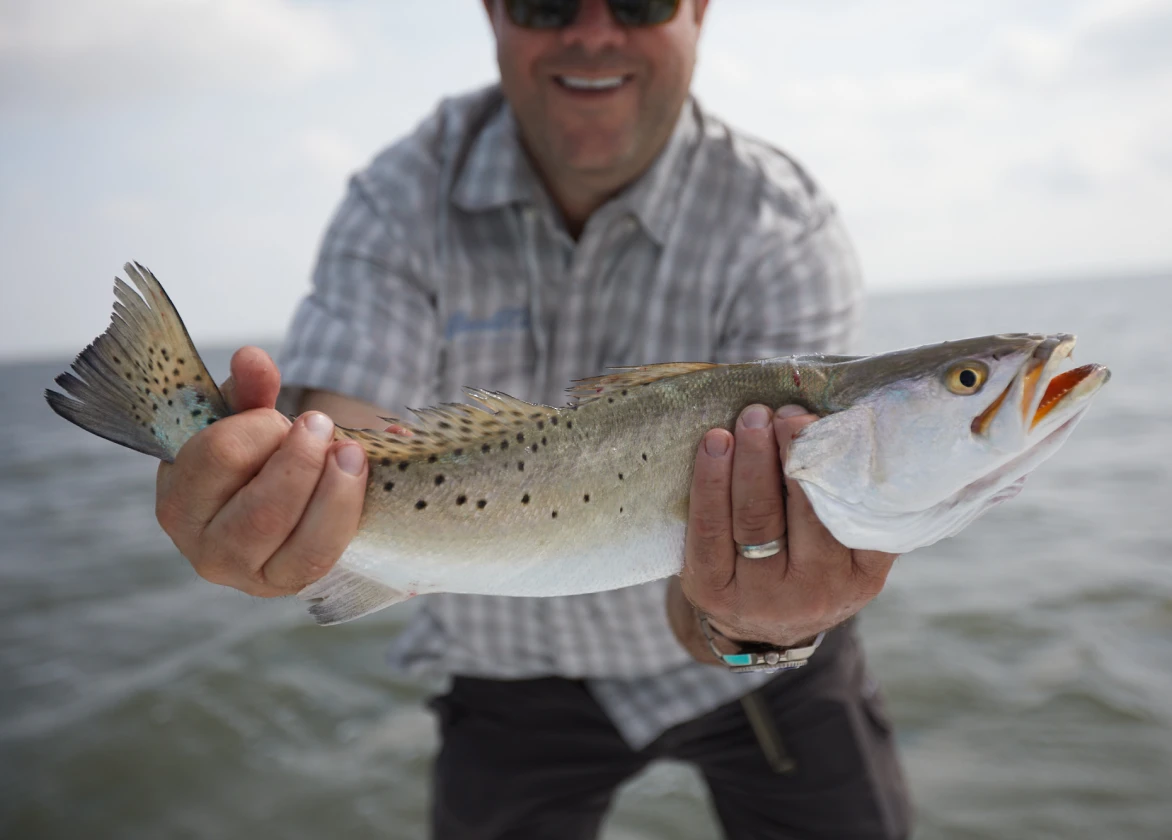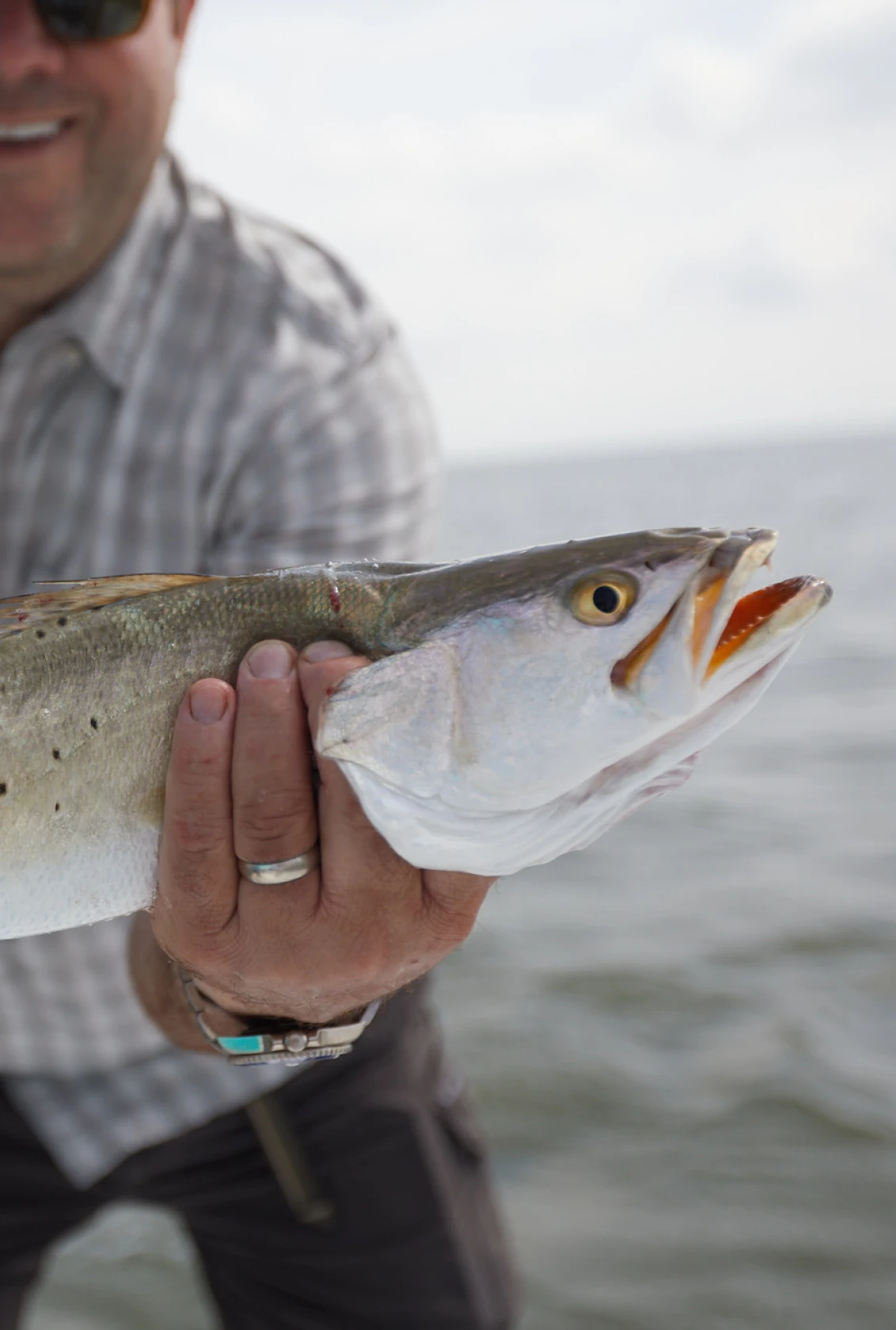
Speckled trout are like family to me. Yep, I know that sounds a little weird, but I spent as much time with trout in my childhood as I did with some aunts, uncles, and cousins.
Speckled trout and I go way back. The same is true for a lot of us here in Texas.
We’re lucky because they’re plentiful along the Texas Gulf Coast and have been for years and years. Striking out on redfish? Go find some trout to throw on the grill—there always seem to be a few around. I fear that proliferation has led to a bit of a careless attitude towards the fish. Trout are an important building block in the Gulf Coast’s ecosystem and, if they’re around, it’s an indication that we’re sitting pretty from a conservation standpoint. Of course, the opposite is true as well.
What can we do about this? Plenty. While conservation organizations are extremely important, the most important conservation efforts begin and end with us—anglers. Let’s lay the groundwork.
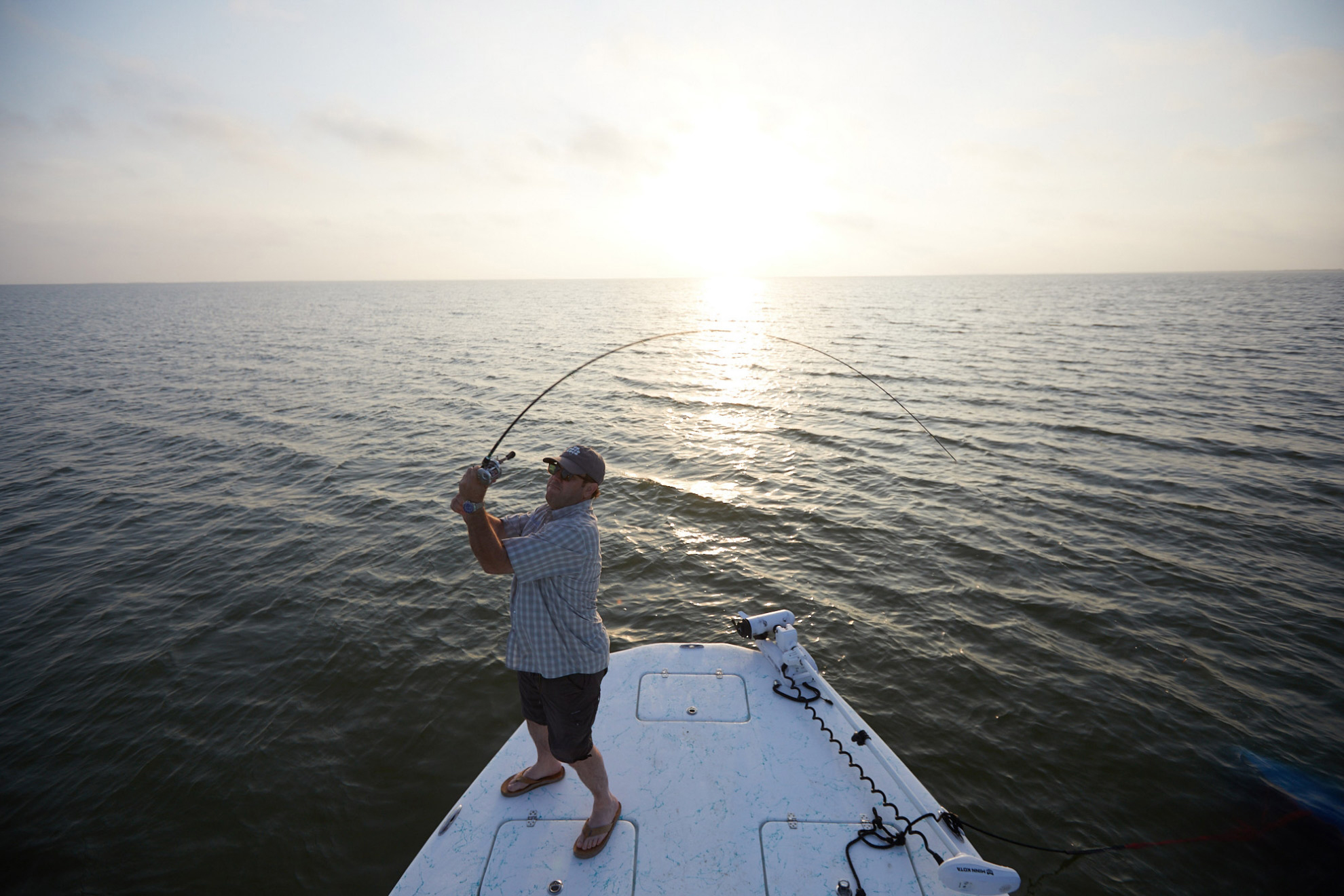
As anglers, we bask in the privilege of enjoying a beautiful place, which means we also carry the responsibility of keeping it healthy.
The state of specks
If you look at the Gulf Coast as a whole, the health of speckled trout populations is a mixed bag at best. As of early 2023, Louisiana faces its lowest population ever due to overfishing and habitat loss. Their state biologists are currently struggling to convince the incredibly influential commercial and recreational fishing markets that while tighter regulations may seem bad for business—declining trout populations are far worse.
In Florida, they face dwindling populations year after year, although water mismanagement seems to be the culprit. Massive amounts of historical development throughout the state, along with supposed mishandling of natural water sources, has decimated grasslands, marshes, mangroves, and coastlines. This means water salinity has been a constant struggle in recent years, which has led to all sorts of fishery problems, from which the speckled sea trout is not immune. Their populations are nearing all-time lows.
It’s not apples-to-apples. Texas has traditionally boasted cleaner aquatic environments than Florida, and has very different coastal environments than our closest neighbors to the east. I’d also say that we have two things in common—booming development and booming human populations— two factors that have been named as primary suspects by our neighboring states.
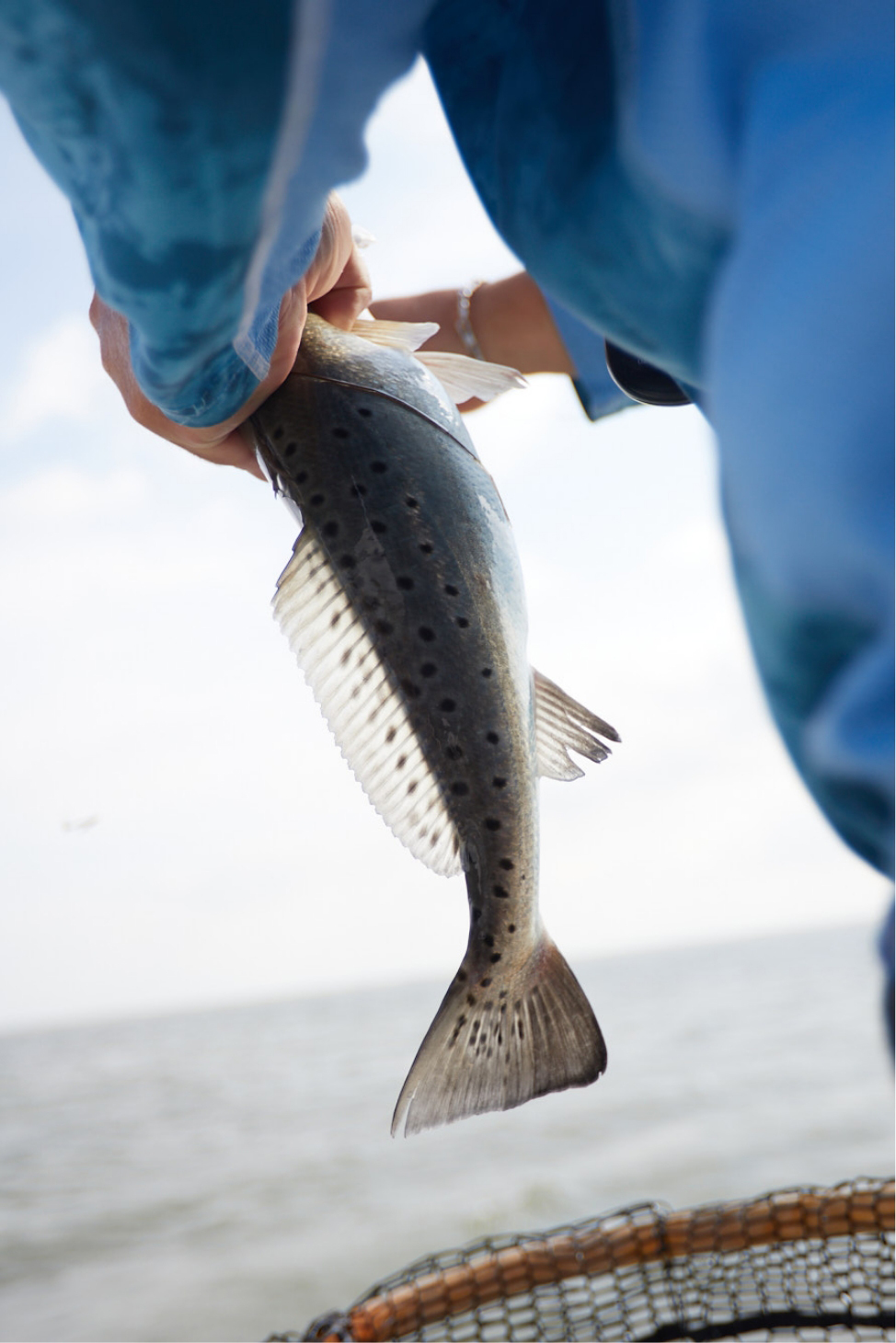
Don't let a good day on the water fool you—catching a big speck is one helluva privilege.

The question is, are we doing enough? The truth of the matter is that politics are a necessary evil when it comes to conservation, but we shouldn’t be relying solely on Austin to protect the places and pastimes we love along the coast.

Don't let a good day on the water fool you—catching a big speck is one helluva privilege.
Trends in Texas
Overall, we’ve been seeing a decline in trout numbers since 2004, which is likely due to historical freezes, increased fishing pressure, as well as some environmental shifts across the coast. Places like San Antonio and Aransas Bay have seen a significant reduction in angler catches, while Matagorda Bay—while once experiencing a similar decline—is currently on the rebound.
So is the sky falling in Texas? No. And that’s great news. Things have been better, sure, but they’ve also been worse and populations seem to be improving. To their credit, Texas Parks & Wildlife has been proactive. After the massive freeze of February 2021, which killed innumerable trout, they enacted emergency slot lengths in some areas to help populations bounce back, and we’re already seeing positive results—so much so that they’re widening those limits for this year.
The question is, are we doing enough? The truth of the matter is that politics are a necessary evil when it comes to conservation, but we shouldn’t be relying solely on Austin to protect the places and pastimes we love along the coast.
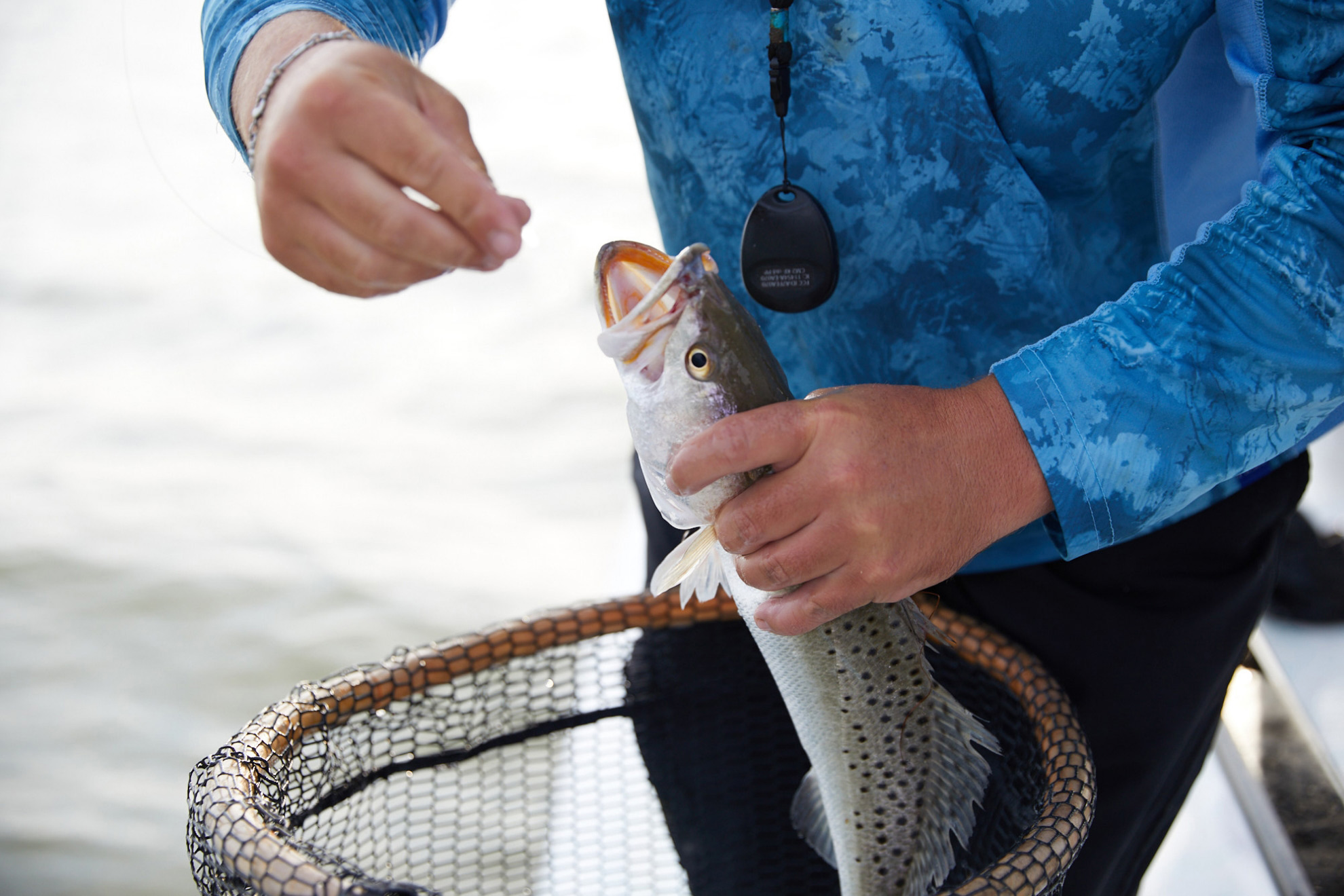
If you're not going to keep it, be sure to get the fish back in the water quickly.
Conservation on an individual scale
In Texas, we’re a very conservation-minded group. Hell, the Coastal Conservation Association started in Houston because people like my dad saw a need to protect our coastal waterways and the fish that swim among them. As coastal anglers, we need to set the example for what grass-roots conservation looks like, both for our fellow Texans and anglers across the country. Here are a few ideas for taking on a personal conservation attitude:
suck at fishing
Just kidding. Sort of. There’s no better conservation strategy than being unable to hook into a fish. If you’re a bad angler, God bless you—your money for fishing licenses is being put to good use.
Self-imposed limits
Bag limits are the bare minimum, and so are slot limits. Think about reducing the amount of fish you keep—particularly the larger fish, which are typically females.
Catch-and-release within reason
Many anglers consider catch-and-release fishing a win-win for both fish and anglers. But studies have shown that speckled trout have an 80–90% survival rate when being released—meaning 1–2 of 10 aren’t going to make it. Even if you’re not planning to keep fish, maybe take it easy on them if the numbers start stacking up.
Safe fish handling
If you are practicing catch-and-release, be sure to release the fish quickly and make sure there aren’t any sharks nearby who are going to move in for an unearned meal.
Make anglers earn it
Think about how openly you share your favorite spots. Without being a jerk about it, let anglers find their own honey holes. This will help prevent overcrowding, overfishing, and ultimately help the angler by giving them the chance to learn for themselves.
Give back
Lastly, give your time and money to conservation organizations. Through our work at Goode Co., we’ve partnered with CCA on numerous occasions and fully support their cause. We even make a special-edition pie for them. Do some research and find other organizations that are doing good work—there are plenty fighting the good fight.
Texans are known for protecting the things we love, and I don’t want trout to be a relationship we let slip away. The same holds true for family as for trout—it just wouldn't be the same without ’em.
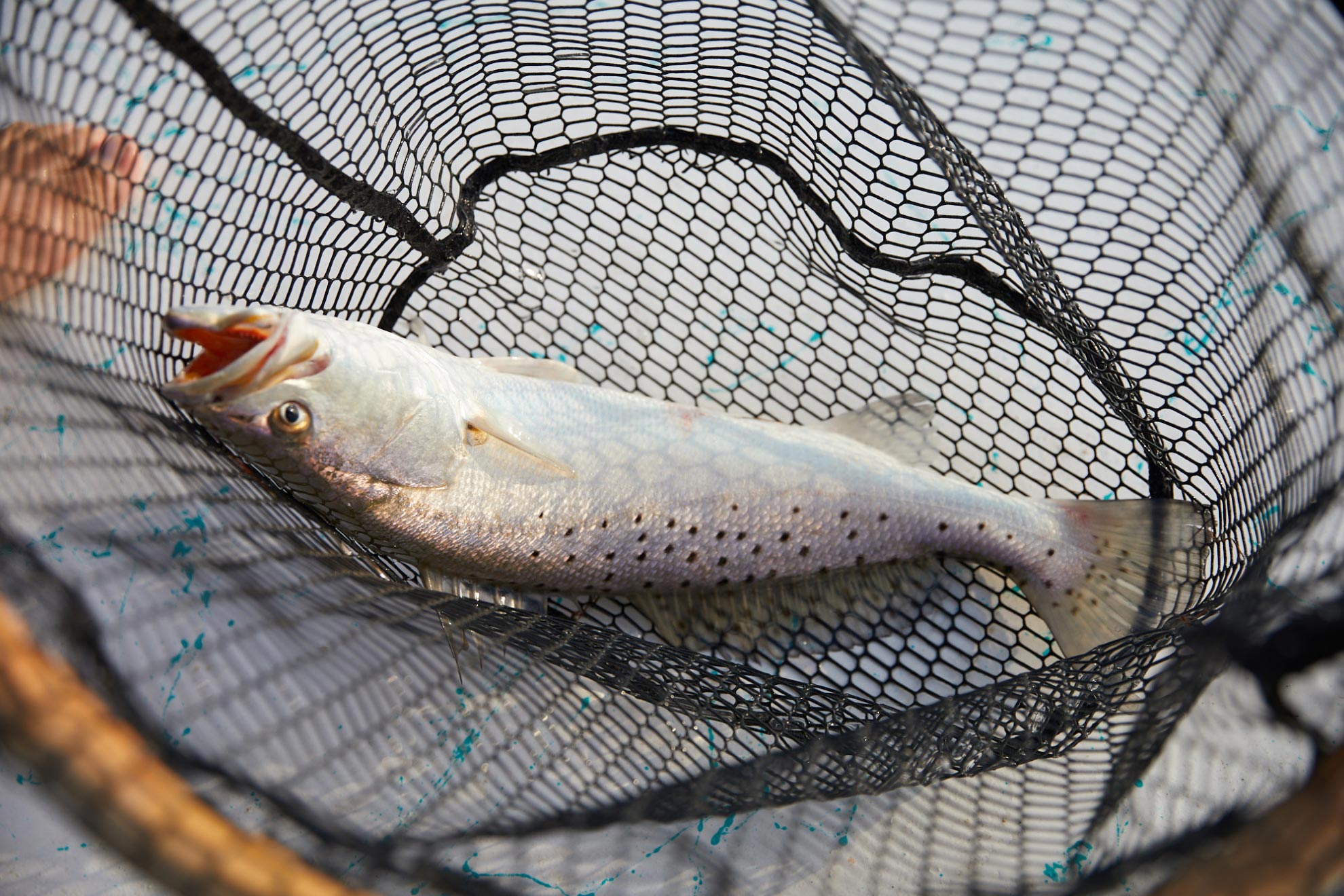
We protect the things we value, so let's be sure to see the value in these beautiful fish.
